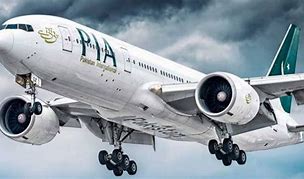Islamabad, Dec 23: The International Monetary Fund (IMF) has agreed to significant concessions that address major challenges to the privatization of Pakistan International Airlines (PIA).
These include waiving the 18% sales tax on leased aircraft and allowing additional liabilities to be transferred to a holding company, according to The Express Tribune.
While formal confirmation is still pending, the IMF’s approval comes after extensive discussions between the Finance Ministry, Privatisation Commission, and the global lender.
Officials confirmed that investors interested in PIA would be exempt from the 18% sales tax on new or leased aircraft, a condition that had previously discouraged serious bidders.
Deputy Prime Minister Ishaq Dar recently received an update on the PIA privatization process, and officials are optimistic that these concessions will help move the stalled project forward.
Previous privatization attempts failed when a real estate developer offered Rs10 billion for a 60% stake, far below the required Rs85.03 billion. Investors also demanded that Rs45 billion in additional liabilities be written off and that aircraft leases be exempt from sales tax.
In response, the government split PIA into two entities, transferring Rs623 billion in liabilities to a holding company. The Privatisation Commission briefed the IMF, emphasizing that these changes were essential to making the privatization feasible and aligning it with global standards.
The Finance Ministry has also finalized the sale of another PIA asset, the Precision Engineering Complex (PEC), to the Pakistan Air Force for Rs6.5 billion. The PEC, which was separated from PIA’s core operations, is now part of the holding company. The PAF deal includes Rs2.5 billion in cash payments over five years and Rs3 billion in liabilities for pension and provident funds.
PIA’s privatization is also contingent on a business plan from the aviation ministry that requires $500 million in investment and the purchase of new aircraft. The sales tax waiver may only apply to planes operating on international routes to prevent unfair competition with local airlines.









